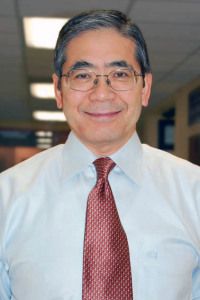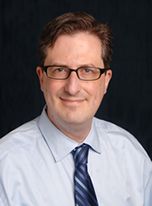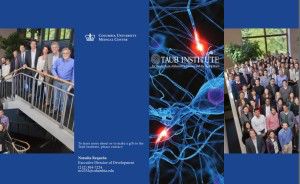THE EADIE WETZEL DAVIS RESEARCH FUND – ESTABLISHED JANUARY 2015
Columbia has long been recognized as a world leader in neurology and neuroscience, and faculty at its Taub Institute for Research on Alzheimer’s Disease and the Aging Brain are pioneers in expanding understanding of the origins and expressions of neurodegenerative disorders, such as Alzheimer’s, Parkinson’s, and ALS.
Columbia’s faculty engage in pioneering research, use those discoveries to develop more effective courses of treatment, and recruit, train and nurture the early careers of the brightest young physicians and scientists entering the field. The largest Alzheimer’s disease research center in the country, the Taub Institute has an unparalleled record of success, and is uniquely well suited to meet the challenges that still lay before them, as the Taub Institute continues its work in the discoveries in prevention, diagnosis, and treatment of neurodegenerative disorders.
THE TAUB INSTITUTE FOR RESEARCH ON ALZHEIMER’S DISEASE AND THE AGING BRAIN AT CUMC
For over a century, Columbia University investigators have been engaged in pioneering neurological research, and the establishment of the Taub Institute for Research on Alzheimer’s Disease and the Aging Brain ratified Columbia’s commitment to learning more about the origins and expressions of neurodegenerative disorders, and how their faculty can better diagnose and treat – and ultimately even cure and prevent – diseases like Alzheimer’s, Parkinson’s, and Huntington’s disease.
To Learn More About The Taub Institute
PIONEERING RESEARCH
The interdisciplinary work of the Institute draws on the historic strengths of Columbia, including neurology, pathology, psychiatry and radiology, and of the University’s leading efforts in technology (in fields such as genomics and computational biology, among others), ensuring that their investigators have every possible tool as they learn more about what goes awry in those with neurodegenerative disorders, and how to translate that new knowledge into still more effective courses of treatment.
UNRIVALED TREATMENT
Patients under Columbia’s care are treated by physicians well informed of the latest research breakthroughs; similarly, clinical results guide the course of future investigations. Faculty are involved in a wide range of clinical trials for new medications, part of their efforts to seek out still better and more targeted interventions for their patients.
NURTURING THE NEXT GENERATION OF PHYSICIAN-SCIENTISTS
As part of a great university, one fundamental element of the Taub Institute’s mission is the recruitment, training and nurturing of the early careers of future generations of Alzheimer’s investigators. Taub-trained scientists are among the most highly regarded in the world; investing in their potential ensures that its successes will proceed unimpeded, and that it can take advantage of every possible opportunity before them.
HIROSHI MITSUMOTO, MD

WESLEY J. HOWE PROFESSOR OF NEUROLOGY
DIRECTOR, ELEANOR AND LOU GEHRIG MDA/ALS RESEARCH CENTER
Dr. Hiroshi Mitsumoto is the Wesley J. Howe Professor of Neurology at Columbia University Medical Center. Previously he was on the faculty of the Cleveland Clinic Foundation where he served as Director of the ALS Center.
Dr. Mitsumoto Bio – CUMC
Recent Publications by Dr. Mitsumoto
Clinical trials in amyotrophic lateral sclerosis: why so many negative trials and how can trials be improved?
Quantitative objective markers for upper and lower motor neuron dysfunction in ALS
EDWARD (TED) HUEY, M.D.

ASSISTANT PROFESSOR, DEPARTMENTS OF PSYCHIATRY AND NEUROLOGY
Edward (Ted) Huey, M.D. is an Assistant Professor of Psychiatry and Neurology at Columbia University Medical Center, in the Departments of Psychiatry (Division of Geriatric Psychiatry) and Neurology (Division of Aging and Dementia), the Taub Institute for Research on Alzheimer’s Disease and the Aging Brain, and the Gertrude H. Sergievsky Center.
Dr. Huey Bio – CUMC
Recent Publications by Dr. Huey
Clinical- Pathological Agreement in Dementing Disorders- Embracing the Complexity






